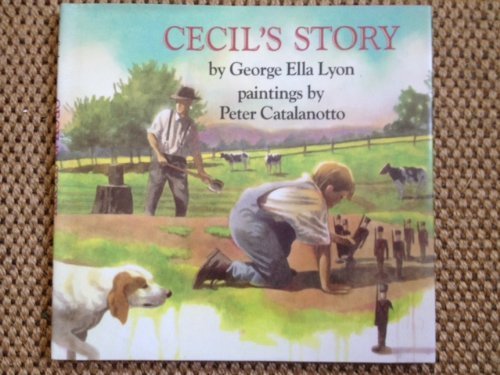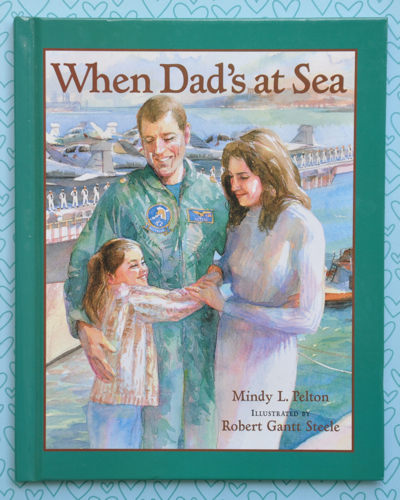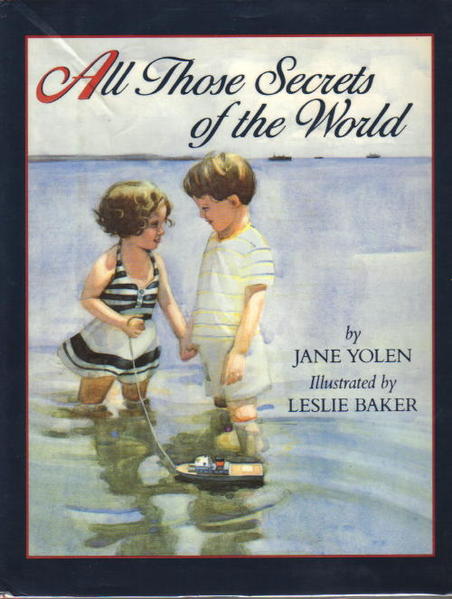
“Think of it,” reads the book’s inside flap. “Your father is a soldier in the Civil War.” And the book doesn’t run from its premise. “If your papa went off to war…” begins the first sentence of Cecil’s Story. There’s a drawing of a shadowy room as a child eats breakfast in the sunshine.
The sentence rambles across two more pages – a beautiful drawing of a yellow sky and an orange sunrise, blue clouds spreading over a green field and a purple horizon. “…he might get hurt,” says page two.
“…and your mama might go to fetch him,” says page three.
The book was written in 1991 – the same year the U.S.entered the Gulf War in Iraq- and its story was said to be particularly timely. The journey to fetch your father might be long, warns page four. (Three children are left at a neighbor’s, one child unable to sleep.) “You’d help look after their cows,” reads the first cheerful caption, showing the boy with a beagle and five black and white cows in a field. 12 faded circles represent the sun as it moves over the fuzzy tree silhouettes in the background, leading up to the sad conclusion of the sentence.
“…and not cry till nighttime…”
The dog puts his head on the lap of the boy – seen from behind – as he waits for weeks for a word from his mother which doesn’t come. In the foreground, a chick hatches from an egg – 12 drawings showing the egg’s interior as it moves from yolk to life.
It’s the Civil War which has stopped the messages from getting through. The neighbors advise the boy to be brave, but he worries. There’s a drawing of a grey field – soldiers marching on the horizon. But even the soldiers in the foreground are faint and faded. He imagines his family without his father – the boy watching over his mother, raising the farm animals by himself. Would the plow be too tall? An orange and grey image fades into his patchwork bedspread – with the boy seen in the background, kneeling and praying.
“If your papa went away to war,” Lyon repeats again, this time adding to the hypothetical that he came back missing a limb or with a bad scar – “you wouldn’t be afraid, because you’d know he was still your papa…” They show the boy holding a stick with the fish that his papa had taught him how to catch, and a speeding rabbit that the boy would snare in a trap his papa helped him build.
And the last sentence reminds the reader gently that he’s still your father who shows the same tenderness, calling him “the man strong enough to lift you now with just one arm.”

